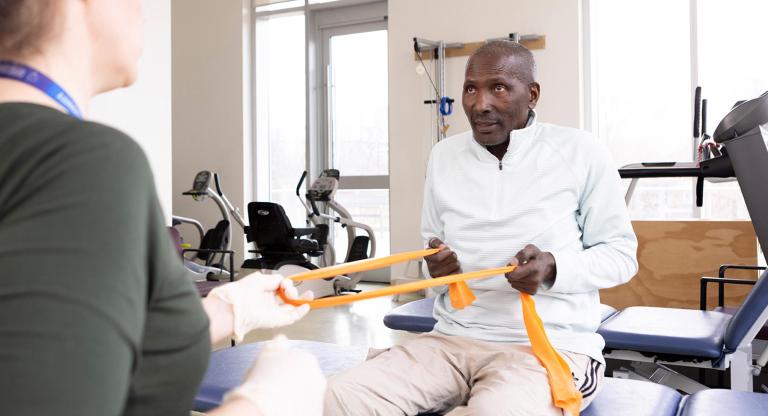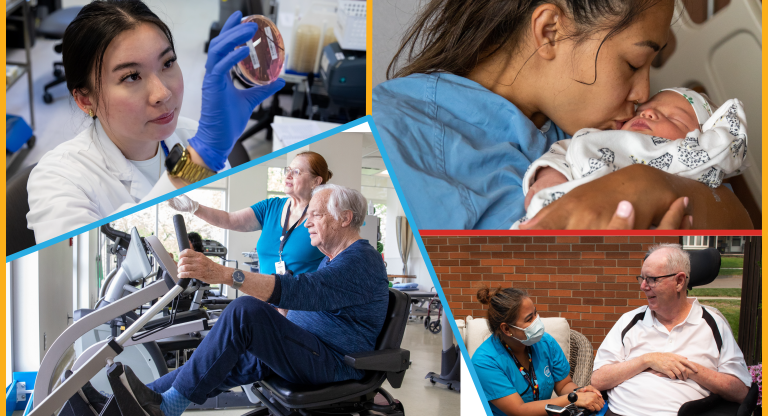Genetic Association with Aggressive Prostate Cancer Discovered

An international study published in the Journal of the National Cancer Institute has identified a genetic connection to the aggressive form of prostate cancer. The study showed a threefold increase in the risk of aggressive prostate cancer for men with the genetic mutation. The frequency of the gene variants varied from six to 14 per cent of the population of men with prostate cancer.
Much like the association between BRCA gene mutation and the risk for breast cancer in women changed the approach to treatment/ prevention, the identification of the Kallikrein 6 gene region may change the course of prostate cancer care through a blood test developed by the Lunenfeld-Tanenbaum Research Institute.
The study was led by Dr. Alexandre Zlotta, Director of Uro-Oncology at Mount Sinai Hospital, and researcher with the Lunenfeld-Tanenbaum Research Institute, part of Sinai Health System in Toronto, Canada, and Dr. Paul Boutros, Principal Investigator, Informatics and Bio-computing, Ontario Institute for Cancer Research (OICR). The first author of the paper was Dr. Laurent Briollais,Senior Investigator, Lunenfeld-Tanenbaum Research Institute.These findings are important because it is well established that most men will die with prostate cancer, and not from the disease. Dr. Zlotta was the lead author of a study in 2013 which revealed the unexpected high prevalence of indolent prostate cancer in men. Diagnosing the aggressive form of the disease is an important unmet need.
“As an oncologist I know firsthand how valuable it would be to have a genetic tool that could help choose the best course of action with my patients,” explains Zlotta. “It would help spare patients with indolent disease from unnecessary treatments and their side effects and aid in the diagnosis and directing patients with aggressive disease to the appropriate treatment.” Up until now, no single test could predict the severity of the cancer type- the current PSA test (Kallikrein 3), which is located near Kallikrein 6, only identifies the risk of prostate cancer, not the severity.
To identify the relevant mutations the scientists analyzed the blood samples of 1,858 men from three independent cohorts in Europe and North America: the Swiss arm of the European Randomized Study for Prostate Cancer Screening, the large American Screening trial, Prostate, Lung, Colorectal, and Ovarian (PLCO), Princess Margaret Cancer Centre (University Health Network) and Mount Sinai Hospital (Sinai Health System) in Toronto. The KLK6 variants also independently predicted treatment failure after surgery or radiation for prostate cancer in an independent cohort of 130 men from the International Cancer Genome Consortium (ICGC).
Dr. Zlotta also collaborated on the study with Dr. Hilmi Ozcelik, Dr. Bharati Bapat and Dr. Eleftherios Diamandis of the Lunenfeld-Tanenbaum Research Institute, and Dr. Neil Fleshner and Robert Bristow from University Health Network (UHN).
This project was funded by the Canadian Institutes of Health Research (CIHR), the Ontario Institute for Cancer Research (OICR), Prostate Cancer Canada (Movember Initiative), a Terry Fox Research Institute New Investigator Award and a CIHR New Investigator Award.
The study was published in memoriam of Dr. Hilmi Ozcelik.
About the Lunenfeld-Tanenbaum Research Institute
The Lunenfeld-Tanenbaum Research Institute, part of Sinai Health System, is a leading biomedical research centre, ranking amongst the top biomedical research institutes in the world. Established in 1985, the institute is profoundly advancing understanding of human biology in health and disease. Many of the breakthroughs that began as fundamental research have resulted in new and better ways to prevent, diagnose and treat prevalent conditions. The institute is affiliated with the University of Toronto and is focused on women’s and infants’ health, cancer biology, stem cell biology, neurobiology, diabetes, arthritis, health systems research, population health services and solutions, and systems biology. www.lunenfeld.ca.
For more information or to arrange an interview, please contact:
Sally Szuster
Senior Manager, Communications and Public Affairs, Sinai Health System
416-586-4800 ext. 8713
[email protected]












